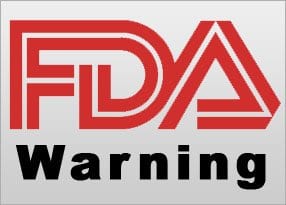Fifteen companies, both within the U.S. and abroad, have been issued warnings by the Food and Drug Administration ordering them to stop selling diabetes treatments online and in stores that violate U.S. drug laws.
One example is Diexi, which is sold as a natural supplement, a product made by Amrutam Life Care of Surat, India. Diexi is sold as an Indian herbal remedy, but Diexi contains metformin, the most common prescription drug used to treat Type 2 diabetes.
The fear raised by the sale of Diexi and other natural or herbal treatment of diabetes is that it will delay those suffering from diabetes from seeking proper treatment for their condition, thereby having no medical follow-up to control the complications of diabetes and medical advice in regards to weight, exercise and diet restrictions to control their health issues.
“Consumers should exercise caution before using products claiming to be herbal or all-natural alternatives to FDA-approved prescription drugs,” the agency said in a statement on Tuesday, July 23, 2013. “These products should be considered unsafe and should not be used.”
Along with Diexi, other products included were dietary supplements that claim to prevent or even treat diabetes. Diabetes Daily Care is a supplement that uses cinnamon extract and other herbs, which is made by Nature’s Health Supply, Inc. In the marketing of Diabetes Daily Care, the maker contends that it “safely and effectively improved sugar metabolism.”
The FDA issued warnings to online pharmacies that sell prescription drugs for diabetes without a prescription. One such online marking site is BestCheapMedsOnline that sells unapproved versions of diabetes drugs, such as Januvia.
The FDA also warned patients against buying prescription medications on the internet because only three percent of online pharmacies comply with all U.S. pharmacy laws, according to the National Association of Boards of Pharmacy.
To date, the FDA has received no reports of illness or injury with regards to the use of the products referenced above, but is taking action as a precautionary measure.
The letters of warning were issued last week and give each company 15 days to reply and explain how they will come in to compliance with FDA regulations. These FDA warning letters are not legally binding, but the FDA can take companies to court if they are ignored.
